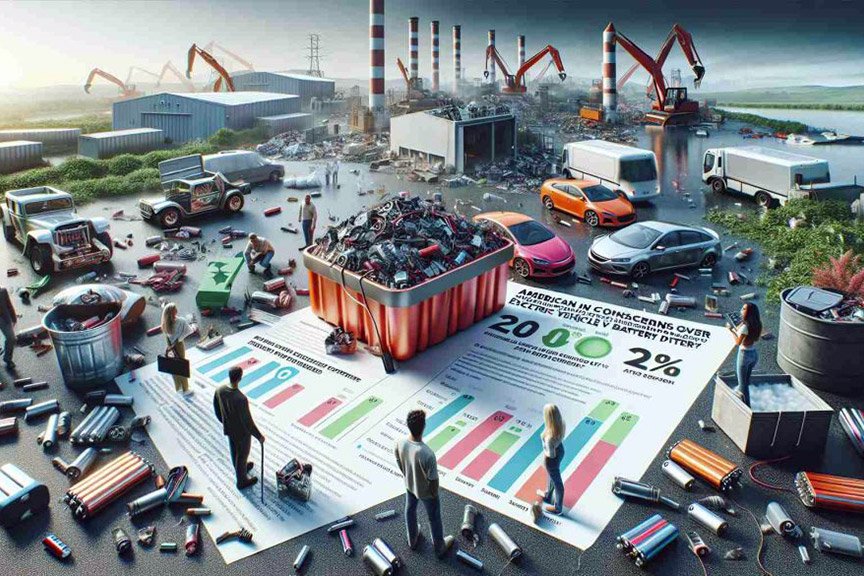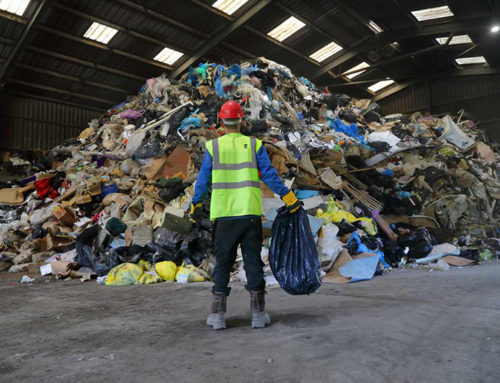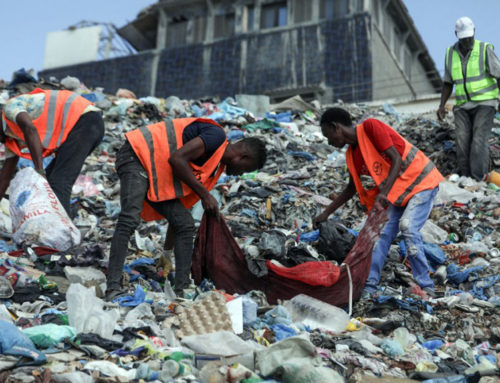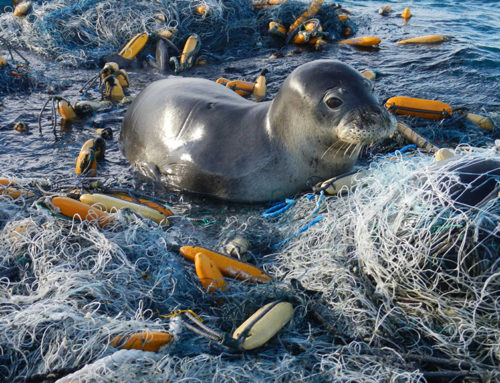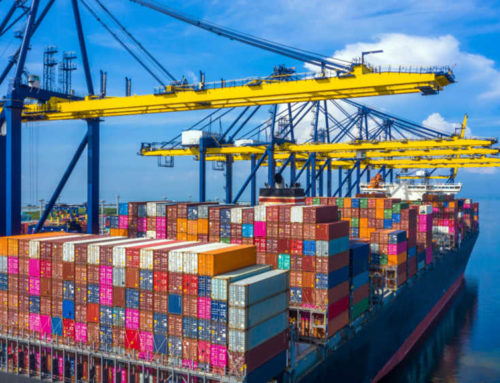As the electric vehicle (EV) market surges ahead in the United States, a growing number of Americans are expressing concerns about the disposal of lithium-ion EV batteries, despite the thriving EV battery recycling industry. A recent study commissioned by Ascend Elements reveals a notable increase in anxiety over battery disposal, with 71% of U.S. adults now worried about the fate of used EV batteries, up from 54% in 2022.
The study highlights a noteworthy misconception among respondents, as 40% believe lithium-ion EV batteries are not recyclable, despite evidence to the contrary. This misinformation may be contributing to the rise in concerns over battery disposal, with 56% of respondents fearing “toxic landfills” resulting from EV batteries, a significant increase from 48% in the previous year.
Eric Gratz, Ph.D., Co-founder and CTO of Ascend Elements, emphasizes the need for public education about lithium-ion battery recycling. Gratz asserts that lithium-ion batteries, including those from EVs, are indeed recyclable. Ascend Elements leads the way in this effort by recovering up to 98% of critical metals from EV batteries and utilizing a patented Hydro-to-Cathode® process to create new, sustainable EV battery materials.
Ascend Elements’ capacity to recycle 30,000 metric tons of EV batteries annually is a significant contribution, representing approximately 20% of North America’s current lithium-ion battery recycling capacity. The company’s recycled EV battery materials have been shown in peer-reviewed studies to perform as well as materials from virgin sources, while also reducing carbon emissions associated with mining.
Despite advancements in lithium-ion battery recycling efficiency and economics, misinformation persists regarding battery disposal. Roger Lin, VP of Government Affairs at Ascend Elements, emphasizes the need to establish an infrastructure that discourages sending lithium-ion batteries to landfills, given their intrinsic value.
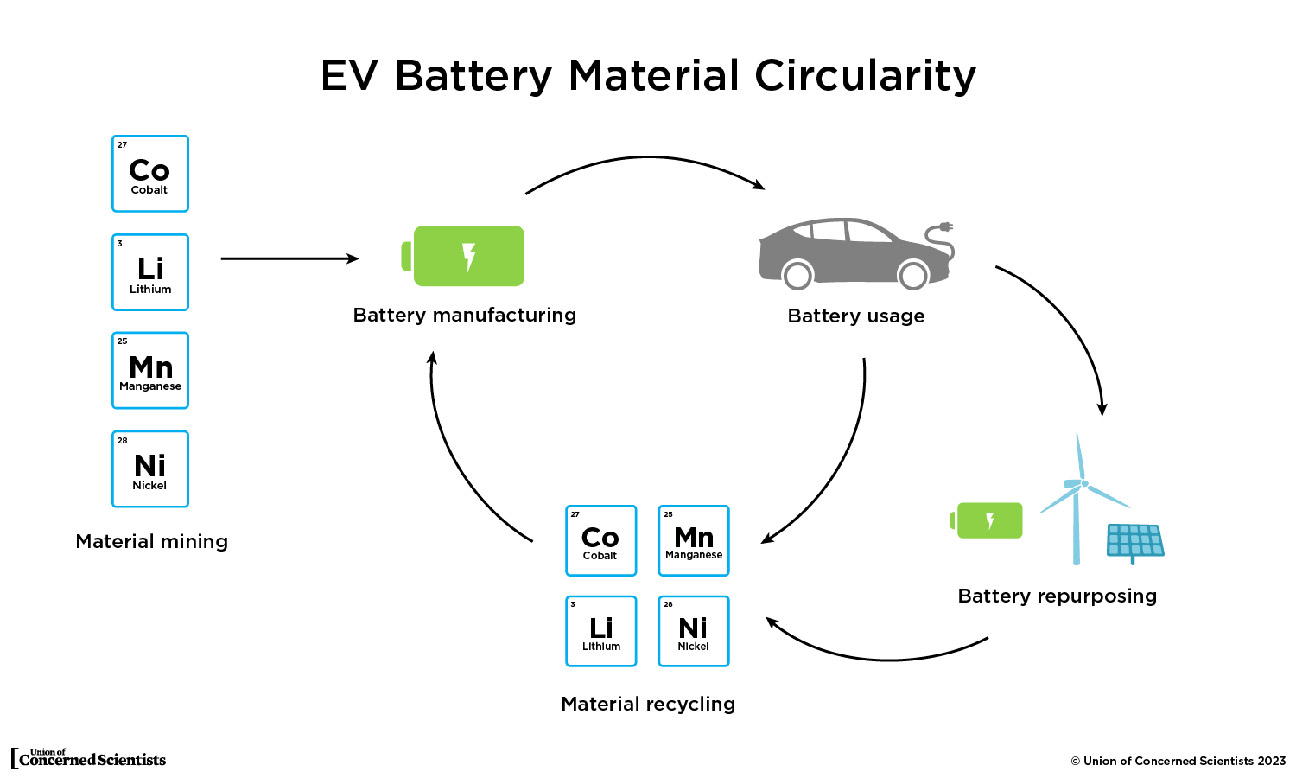
Survey data indicates progress in educating the public on lithium-ion battery recycling for various types, but challenges remain:
- Only 21% believe lithium-ion batteries can be recycled in household bins, down from 33% in 2022.
- Only 15% think lithium-ion batteries can be placed in household trash, down from 27% in 2022.
Improper disposal of lithium-ion batteries poses risks of fires and explosions in waste management facilities. Dr. Gratz advises against putting these batteries in household bins or trash, urging consumers to drop them off at authorized collection points, such as municipal recycling programs or locations listed on Call2Recycle.
The survey identifies opportunities for continued education regarding household lithium-ion battery use and recycling:
- 40% understand the importance of not charging e-bike or electric scooter batteries unattended or overnight.
- Over 60% recognize the necessity of not leaving a lithium-ion battery plugged in when not charging.
- 42% know they should cover battery terminals with electrical tape or place them in a clear plastic bag before recycling.
- 30% understand the distinction in recycling damaged or recalled lithium-ion batteries.
While concerns about EV battery disposal are on the rise, the survey underscores the need for ongoing education and outreach to enhance consumer understanding of lithium-ion batteries and their recyclability. As the EV market continues to expand, a collective effort is crucial to ensure responsible disposal practices and mitigate environmental impacts.

